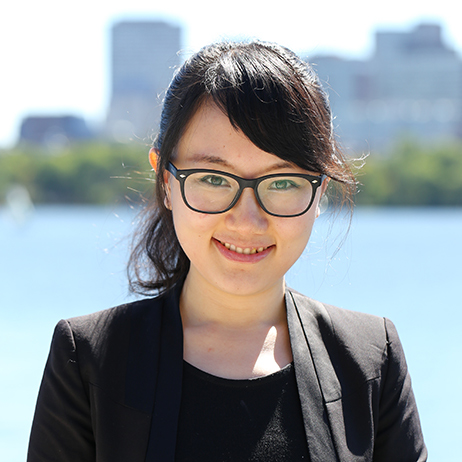Yan Leng of the University of Texas at Austin joined us on December 5, 2022, for “Learning Network Structures from Behavioral Data.”
Individuals, or organizations, cooperate with or compete against one another in a wide range of practical situations. Such strategic interactions are often modeled as games played on networks, where an individual’s payoff depends not only on her action but also on that of her neighbors. Despite the popularity and wide applications of network-based interventions in economics and social sciences, it is often the case that the actions of the players are readily observable while the underlying interaction network remains hidden. This talk will discuss two closely-related papers for learning, from observations on individual actions to network games and, in particular, the structure of interaction networks. The first paper builds on the Nash equilibrium of linear quadratic games. The framework involves solving a joint optimization problem for the graph structure and the individual marginal benefits. In the second paper, we relax the assumption of the utility function associated with the game. We develop a transformer-like deep learning architecture that effectively accounts for the symmetries of the problem and learns a mapping from the equilibrium actions to the network structure of the game without explicit knowledge of the utility function. Both synthetic and real-world experiments demonstrate the effectiveness of the proposed frameworks, which have theoretical as well as practical implications for understanding strategic interactions in a networked environment and enabling network interventions.

Yan Leng is an assistant professor at the McCombs School of Business, the University of Texas at Austin. She is a core member in UT Machine Learning Lab and an affiliate with the UT AI and Misinformation Initiative. She is also an affiliate with MIT Media Lab. Her research is focused on computational social scientist and network scientist using large-scale data sets, network theory, and machine learning to understand behaviors over networks.